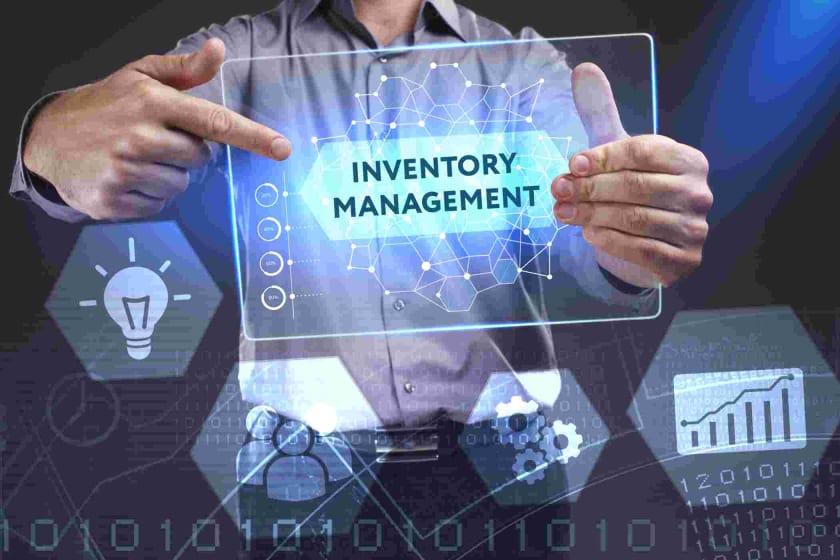Top 20 Inventory Management Softwares for Clothing Brands and Manufacturers



A retail business cannot sustain itself on manual labour alone. Volume of production and complex logistics (both pre and post production) offer significant hurdles. Put another way: automation is inevitable for businesses looking to scale up.
Take inventory management as an example. In the past, inventory management relied on human labor alone. This form of “analog” stock keeping was a recipe for errors. Humans cannot accurately process large volumes of inventory. Poor inventory management translated to significant losses for businesses.
Businesses embraced automation as a matter of necessity. Software-based solutions are popular today for streamlining complex operations. In the apparel industry, inventory tracking and processing is done using apparel management softwares. These softwares optimize inventory and minimize human error.
What Is An Inventory Management Software?
It is a set of digital tools designed to help businesses automate and streamline the inventory management process. These softwares compute large volumes of inventory with accuracy and minimal error. As a result, companies are able to save time, increase team productivity and reduce costs.
There are several inventory management softwares available in the market. This is good news for brands. Don’t like the current software you are using? Uninstall it, cancel your subscription and pick another one! The bad news is that, well, there are too many to pick from! Which inventory management software should you as an apparel brand use?
We at Fashinza editorial curated a list of the best inventory management softwares for brands. Read below and decide which one is best for your business.
1. NetSuite ERP
This is an all-in-one cloud-based software designed to help large and mid-sized businesses. NetSuite ERP is ideal for growing apparel enterprises who want to simplify core aspects of their business. NetSuite comes packed with features that can be integrated with financial operations and demand planning to optimize inventory.
2. Think Aisle
Think Aisle is a cloud-based management software. Its USP is its flexibility and customisable nature. This is possible because of Think Aisle’s sophisticated integration capabilities. The software can integrate with accounting, e-commerce, EDI, 3PL and other parts of a business.
Noteworthy features of Think Aisle include serialized inventory management, product fulfilment and return material authorization. Other features include automated invoice and billing as well as report and analytics.
3. Gofrugal
Gofrugal is a hybrid point of sale (POS) software solution. It is used by retailers across industries to manage distribution and billing routines. Gofrugal can be deployed either in physical locations or hosted in the cloud.
Two features of this software are worth noting. The first is the ability to automate financial transactions. Secondly, the inventory management module allows users to generate inventory reports, fill orders and set up automated ordering.
4. Unicommerce
The USP of Unicommerce is its centralized inventory management system. Any product out of stock is tracked immediately; inventory is also updated across multiple channels. This means that brands can get real-time updates of all inventory from warehouses.
Another handy feature of Unicommerce is Automatic Stock Synchronization (ASS). ASS enables accurate visibility of stock, improves sales and simplifies order cancellations.
5. TYASuite
This software allows you to manage inventories using an inbuilt QR code and barcode system. The system can be deployed simultaneously at the company location or warehouse. This can in turn enhance inventory turnover over a period of time.
TYASuite has two other features of note. The first is the ability to track stock on a real-time basis. The other feature is an automated alert system for tracking inventory shortage.
6. PartsPal
PartsPal makes managing auto parts easy! This management software allows you to keep track of the products you sell. You can use the product mapper to easily add details such as product price, brand and images. You can also restock auto parts across multiple warehouse locations and sales channels.
Partspal imports parts from multiple suppliers and accepts multiple industry standards (e.g., GAPC). This allows PartsPal to automatically match product categories with your desired standard.
7. ProfitBooks
ProfitBooks is a free accounting software best suited for manufacturers and wholesalers. The application’s best feature is its smart integration of accounting with inventory management. This allows a business to create purchase orders as well as track day to day expenses.
We recommend ProfitBooks to small businesses that manufacture their own products and sell them online. This is because ProfitBooks is user-friendly, affordable and does not require advanced knowledge of accounting.
8. Zoho
Zoho is a standalone inventory management software. It allows businesses to track stock levels. Businesses can also manage both online and offline orders across multiple channels.
Zoho’s strength lies in its suite of affordable web-based business tools. This is why we recommend Zoho to small and mid-sized businesses in retail or trading sectors. Large manufacturers (in comparison) may stand to benefit less from Zoho.
9. IvyMobility
IvyMobility’s distribution management system (DMS) operates in a cloud environment. The DMS can be accessed by the entire distribution network on mobile devices. IvyMobility ensures direct store delivery using AI systems and machines.
Ivy Mobility also offers Ivy Retail Intelligent Execution. This AI assistant allows businesses to streamline sales, merchandising, and marketing directly from the cloud.
10. Cin7
This is an all-in-one integrated platform that allows you to run all aspects of your business.
The best features of Cin7 include inventory management, third-party logistics support and an automated point-of-sale package. Also, Cin7 integrates with more than 100 third party applications. Hooray for more functionality!
11. Detego
Detego’s USP lies in its cloud-based platform which is ideal for retailers. The RFID system digitises traditional stock management processes. This in turn increases inventory accuracy and ensures optimal product availability across all channels.
12. Horizon ERP
This software offers simple billing capability bundled with modules for inventory and accounting. Horizon ERP is fast, reliable and easy to maintain. It is ideal for businesses which have hundreds of SKUs and a large number of invoices. Horizon ERP’s current client base includes distributors, retailers and small manufacturers.
13. inFlow
inFlow is used in over 90 countries for manufacturing, distribution, wholesale, ecommerce etc. It is a cloud based platform accessible from desktop, web and mobile apps. This makes inFlow very user-friendly.
High volume products can be tracked quickly and accurately using inFlow. The app also helps to receive, transfer, or fulfill stock in real time. It has the system of built-in barcode generation and label printing to make it easy to adopt barcodes for scanning.
14. Fishbowl
Fishbowl is suitable for small and medium-sized businesses. It offers inventory control which is useful when managing your business across multiple warehouses.
The basic features of Fishbowl include real-time tracking of shipments and product levels, material requirement planning (MRP), work order management etc. A neat feature of this software is its ability to predict inventory requirements. This allows Fishbowl to automatically reorder products through reorder points set for each warehouse item.
15. OpenBravo Commerce Suite
This software offers a collection of modules for streamlining retail and POS management. OpenBravo is best suited for businesses which manage multiple retail channels. This is because the software handles all processes from a centralized (i.e., “omnichannel”) platform.
There are two notable features of OpenBravo. The first is the ability to optimize customer service across multiple brick and mortar stores. Secondly, a business can track inventory in real-time across the entire supply chain.
16. ApparelMagic
This is an integrated software platform specifically designed for apparel businesses. It allows fashion brands to manage their business from a centralized hub (e.g., customers, accounting, inventory, and sales). We at Fashinza really love that you can track apparel styles and materials through ApparelMagic. Another great feature of this software is its integration with other platforms (e.g., Shopify, ShipStation etc.)
17. Xero
Xero is a web-based accounting platform. We find Xero as best suited for small and growing businesses. This is because it has robust features (e.g., you can pay bills, claim expenses, track projects etc.) that are accessible from any device.
Xero’s best feature in our opinion is its ability to match small businesses with trusted advisors. This matching system is useful as small business owners can get a quick and affordable understanding of their finances.
18. ShippingEasy
This is a cloud-based shipping and inventory management solution. Its basic features include order management, label customization, rate comparison and returns management.
ShippingEasy’s best feature lies in its integration with multiple ecommerce platforms and marketplaces. UPS and FedEx account integrations are an added bonus on top. As such, we recommend Shipping Easy to all small to mid-sized ecommerce businesses.
19. Brightpearl
Brightpearl offers multi-location inventory management from a centralized point of operation. The software’s pro lies in its ability to automate repetitive tasks (e.g., reordering, shipping, invoicing and order fulfillment). A bonus feature of Brightpearl is its smart inventory demand planning system.
20. UpKeep
UpKeep offers an inventory management software that is worth its value. This is because of its robust maintenance and asset management capabilities. Accessible from any device any time, the Upkeep app creates work orders on-the-fly. Users also get app notifications for task updates as well as alert messages when assets go down.
Hope you found the article helpful! If you have any queries or want more information on inventory management, you can let us know in the comments!



















